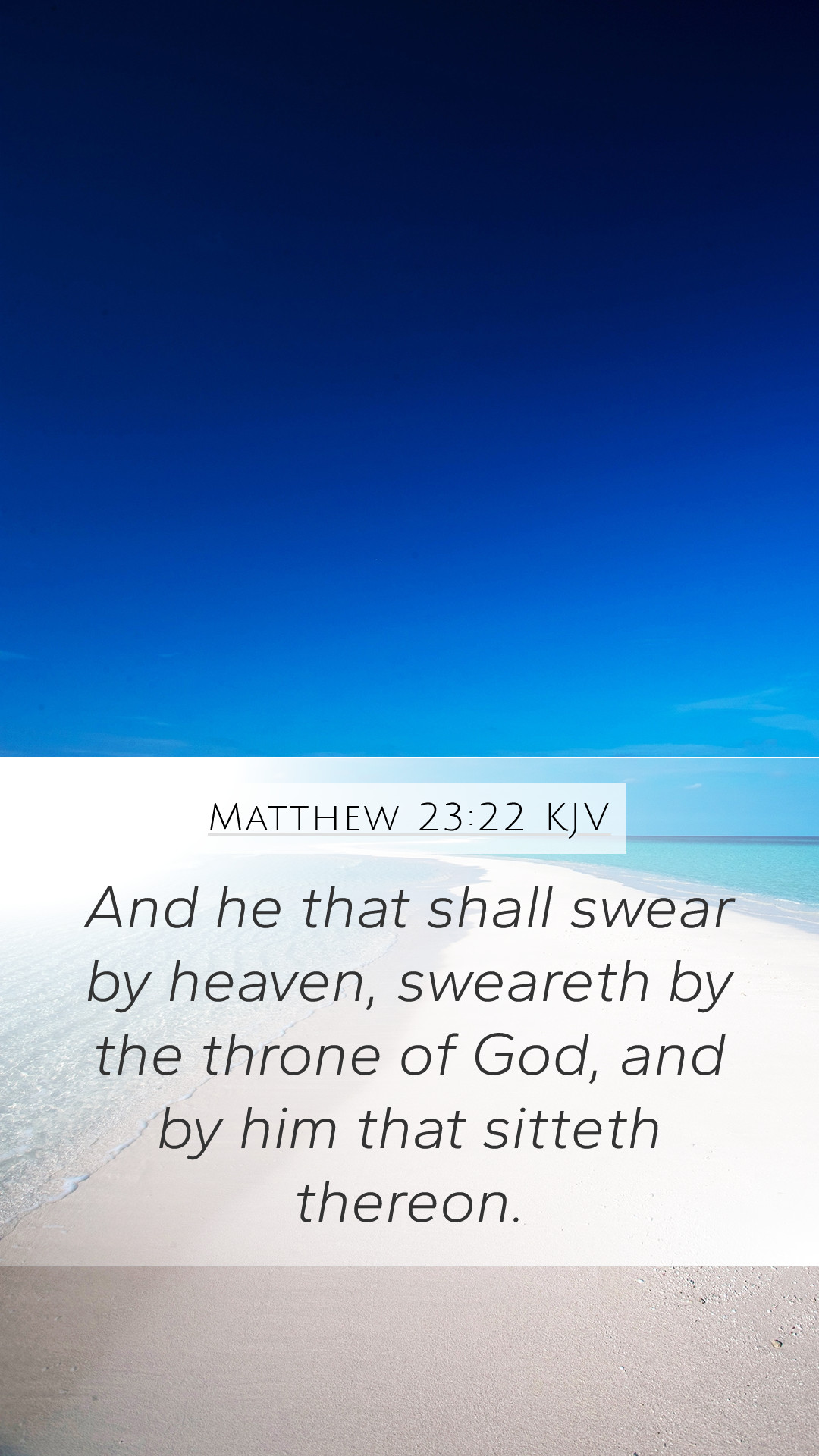Understanding Matthew 23:22
Matthew 23:22 states:
"And he that swears by heaven, swears by the throne of God, and by him that sits thereon."
This verse is a part of Jesus' teachings addressing the Pharisees' practice of making oaths, which reflects broader themes of honesty, integrity, and the reverence due to God.
Bible Verse Explanation
The verse emphasizes that all oaths are ultimately tied to God, who is sovereign over all creation. Here is an exploration of its significance:
1. The Nature of Oaths
-
Matthew Henry's Commentary: Matthew Henry points out that Jesus is addressing the hypocrisy of the religious leaders who trivialize their oaths. He argues that swearing by heaven does not exempt one from accountability to God, as heaven itself is under His dominion.
-
Albert Barnes' Observations: Albert Barnes elaborates that the phrase embodies the principle that God’s name is invoked in every oath—thus, swearing by anything in creation is ultimately swearing by God. This implies that a verbal commitment carries the weight of divine accountability.
-
Adam Clarke's Insight: Adam Clarke emphasizes the seriousness of invoking God in oaths. He notes that swearing should be a reflection of true commitment and honesty, aligning one's words with God's truth rather than empty gestures meant to impress others.
2. The Call to Integrity
This verse serves as a call to integrity in speech. The religious leaders of the time had created a system where certain oaths were deemed less binding, illustrating the danger of relativizing truth.
- Contextual Relevance: The passage occurs within a broader discussion (Matthew 23:16-22) where Jesus critiques the Pharisees' legalistic teachings and their misuse of God's commandments.
- Application in Daily Life: Today, this verse encourages believers to consider the weight of their words and the necessity of honesty in all forms of communication, including verbal commitments and promises.
Biblical Cross References
- James 5:12: "But above all things, my brethren, swear not, neither by heaven, neither by the earth, neither by any other oath..." - This reinforces the teachings of Jesus concerning the use of oaths.
- Exodus 20:7: "Thou shalt not take the name of the LORD thy God in vain..." - Highlighting the gravity with which God's name should be treated.
- Matthew 5:34-37: "But I say unto you, Swear not at all; neither by heaven; for it is God's throne..." - A parallel passage that emphasizes the avoidance of swearing altogether.
Bible Study Insights
Studying this verse can be fruitful for Bible study groups and individuals wishing to engage in deeper scriptural analysis. Here are some insights:
- Understanding Scripture: Examine how this verse fits within the larger narrative of the Gospel of Matthew, particularly in relation to Jesus' challenges against the Pharisees' authority.
- Historical Context: Investigate the historical practices of swearing oaths in Jewish society, and how Jesus' teachings challenged these norms.
- Application in Faith: Reflect on how one can apply the principles of integrity and honesty in our modern dealings, contemplating the significance of sincerity in personal and communal contexts.
Conclusion
Matthew 23:22 serves as a profound reminder of the need for honesty and integrity in our speech. As followers of Christ, understanding the implications of invoking God's authority in our words calls us to a higher standard in our commitments and promises. Depend on this understanding when studying the Bible or engaging in discussions within Bible study groups, as these principles hold significant relevance today.


